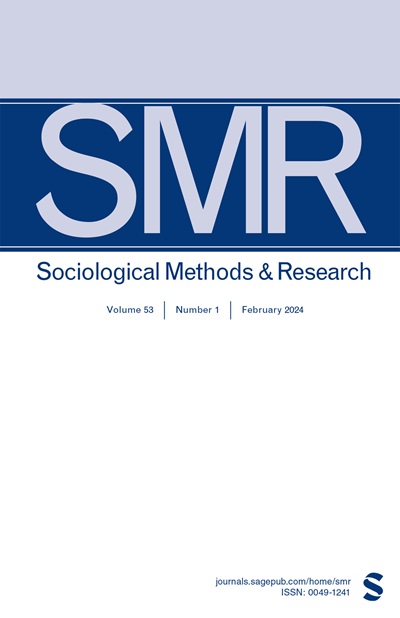Absolute and Relative Mobility: Two Frameworks for Connecting Intergenerational Mobility in Absolute and Relative Terms
IF 6.5
2区 社会学
Q1 SOCIAL SCIENCES, MATHEMATICAL METHODS
引用次数: 0
Abstract
Researchers concerned about intergenerational inequalities study绝对流动与相对流动:两种连接绝对与相对代际流动的框架
关注代际不平等的研究人员研究绝对和相对流动性(例如,人们的成年收入是否在美元或排名上超过了父母的收入)。根据定义,绝对流动性和相对流动性是联系在一起的。然而,它们并不等同。事实上,它们经常出现分歧。为了阐明为什么、什么时候、为谁而发生这种分歧,以及为什么、什么时候、为谁而可能趋同,本文提供了两个框架来连接绝对流动性和相对流动性。一个框架是形式的,一个是类型的。这两个框架都以跨代微观层面的社会经济经验为中心。说明性分析利用国家青年纵向调查数据采用这些框架。结果表明,不同的经验,如向上的绝对流动性,而向下的相对流动性,可能在更有利的社会群体中更常见。未来的研究人员可以使用这里介绍的两个框架来进一步推进我们对代际不平等在绝对和相对方面如何演变不同的理解。
本文章由计算机程序翻译,如有差异,请以英文原文为准。
求助全文
约1分钟内获得全文
求助全文
来源期刊

Sociological Methods & Research
Multiple-
CiteScore
16.30
自引率
3.20%
发文量
40
期刊介绍:
Sociological Methods & Research is a quarterly journal devoted to sociology as a cumulative empirical science. The objectives of SMR are multiple, but emphasis is placed on articles that advance the understanding of the field through systematic presentations that clarify methodological problems and assist in ordering the known facts in an area. Review articles will be published, particularly those that emphasize a critical analysis of the status of the arts, but original presentations that are broadly based and provide new research will also be published. Intrinsically, SMR is viewed as substantive journal but one that is highly focused on the assessment of the scientific status of sociology. The scope is broad and flexible, and authors are invited to correspond with the editors about the appropriateness of their articles.
 求助内容:
求助内容: 应助结果提醒方式:
应助结果提醒方式:


